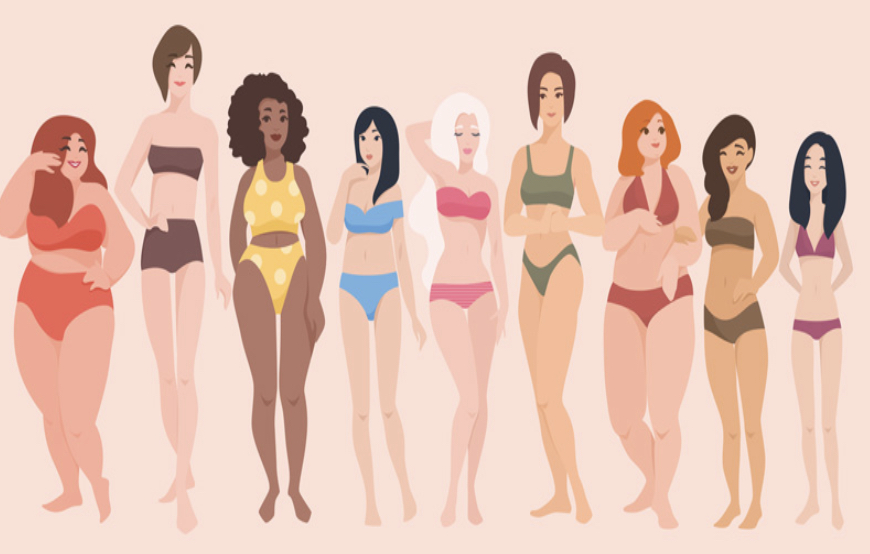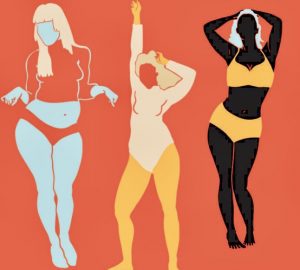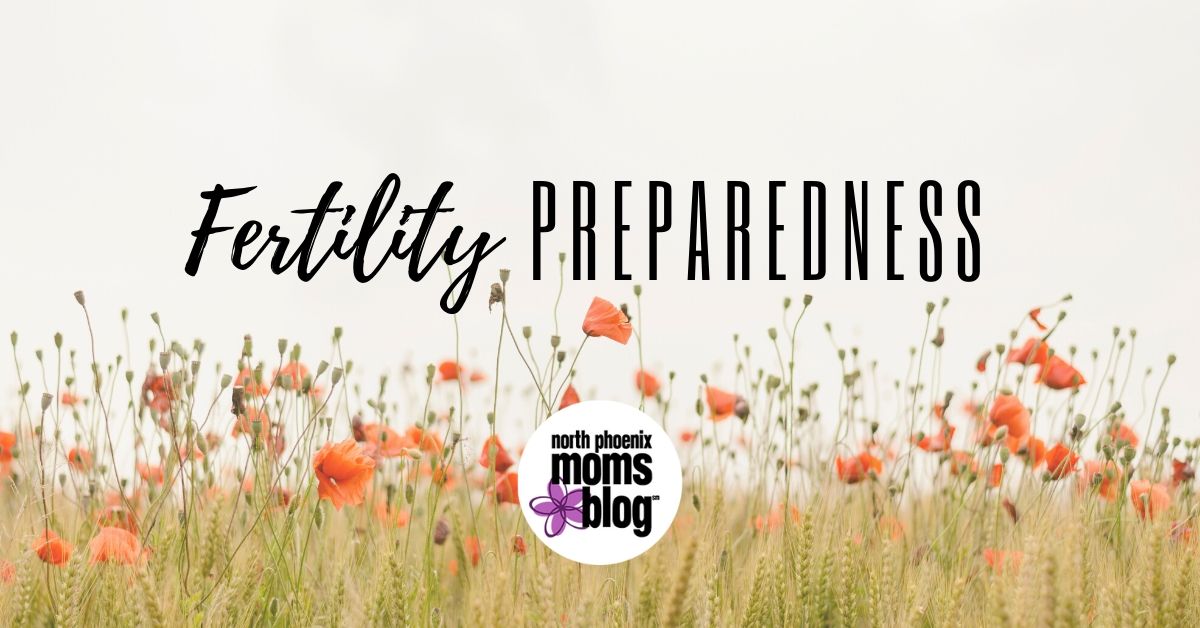These days, with the impact of Covid-19 on our socializing IRL, many are turning more than ever to social media. These platforms can be a great way to stay in touch with friends and family and learn about cooking, beauty, health, and fitness tips, often gaining motivation from those who are followed. However, women of all ages can fall into the unhealthy trap of comparing their bodies to those they follow on social media, and teens and college-aged women may suffer the most from the negative effects. Over 75% of teenage females in a recent study reported body image dissatisfaction…this is a growing problem that needs to be actively addressed for the physical health and psychological wellbeing of our girls.
While weight and body mass index may be indicators of health, they aren’t very accurate: many traditionally “overweight” people are in excellent metabolic health and many people who physically appear healthy are metabolically unhealthy. However, it is much more common for girls & women in my practice to want to discuss their weight or ways to lose weight than how to improve their metabolic health. As women, we often have unrealistic perceptions of our bodies and what it means to truly be healthy. And the sad truth of the matter is that research demonstrates that we likely have a weight “set point” at which our body strives to stay. This is mostly determined by genetics, and therefore, can be a source of great frustration.
 Weight is objectively and subjectively easy to observe and, therefore, judge, especially given all the external influences on what a prototypical healthy body looks like. In addition to the societal influences, there are also messages that can be relayed from mother to daughter: mom’s remarks about her own body, or those of others, or what is thought to be well-meaning “advice” to daughters about ways to watch or lose weight or diet more effectively. These subtle messages may be part of a “script” that mom has learned from her mother, and may go back generations, leading to unrealistic and unhealthy ideas of diet, exercise, and body image. And this is not just a matter of physical health; weight misperception has been found to be an important determinant of psychological symptoms in young women that can be carried on into adulthood, perpetuating the cycle.
Weight is objectively and subjectively easy to observe and, therefore, judge, especially given all the external influences on what a prototypical healthy body looks like. In addition to the societal influences, there are also messages that can be relayed from mother to daughter: mom’s remarks about her own body, or those of others, or what is thought to be well-meaning “advice” to daughters about ways to watch or lose weight or diet more effectively. These subtle messages may be part of a “script” that mom has learned from her mother, and may go back generations, leading to unrealistic and unhealthy ideas of diet, exercise, and body image. And this is not just a matter of physical health; weight misperception has been found to be an important determinant of psychological symptoms in young women that can be carried on into adulthood, perpetuating the cycle.
Recent research demonstrates that negative body image in both teens and adult women can contribute to disordered eating, eating disorders, dysfunctional exercise, depression, and anxiety. In fact, nearly 60% of teens in one study reported parent weight-related comments and dieting behaviors, and family weight-teasing as playing a role in their negative self-image. The reverse has been shown to be true too: positive body talk from mothers to daughters has been shown to improve physical and mental health, healthy eating and exercise, and positive body image.
To be clear, abnormal weight gain or loss should be investigated and not ignored, but one typically needs more in-depth investigation to determine metabolic health vs simply stepping on a scale. Metabolic issues that increase risks of chronic disease run in families and are often “silent” for years or decades before symptoms occur and are easily screened for through routine blood work, including blood sugar parameters, cortisol, cholesterol, and thyroid function. It is also important to realize that there are times of transition where girls and women may be more prone to weight gain, including puberty, the “freshman15”, time between pregnancies, and perimenopause. And, reproductive problems like PCOS have a high probability of metabolic disturbance and metabolic disturbance can cause reproductive problems like irregular cycles and infertility. A careful review of diet, exercise, and lifestyle may be able to pinpoint changes that can improve overall health and halt unhealthy weight changes.
 Perhaps even more important and sadly more often overlooked is the psychological aspects of unhealthy weight and body image. After evaluating and addressing any metabolic issues, I routinely refer to local registered dietitians and counselors to assist women of all ages to dispel diet myths and reset what it means to be healthy from a self-image perspective.
Perhaps even more important and sadly more often overlooked is the psychological aspects of unhealthy weight and body image. After evaluating and addressing any metabolic issues, I routinely refer to local registered dietitians and counselors to assist women of all ages to dispel diet myths and reset what it means to be healthy from a self-image perspective.
We are very lucky here in Phoenix to have a local registered dietician that is offering a program for mothers & daughters to learn how to promote and develop a healthy body image. Liz Brinkman, RD. Her plan is to form mother-daughter groups to learn about what true health, beauty, value, worth, and identity is. Not what the media, Instagram, and Facebook are telling us. She will offer this support through a virtual summer camp for the girls and a supportive learning circle for the moms. The sessions for the girls & moms will take place over a secure Zoom line and the lessons will be guided through a proven curriculum created over the past 20 years by The Body Positive. Learning in a group setting will allow for true success because success is not defined as a static end goal of individualized perfection, but as a way of living that offers permission to love and care for one’s self and each other. Moms: you don’t have to be at a point of unconditional love of your own body to make a positive impact on your daughter. What our daughters need is to see us being “imperfect,” not having it “all together,” but showing up to talk about the tricky topics anyway.
Please reach out to Liz for more information on the next program which starts September 2020 or to work with her one-on-one. And contact me if you have any questions about metabolic health & wellness for women of all ages.
For more information check out Health at Every Size












